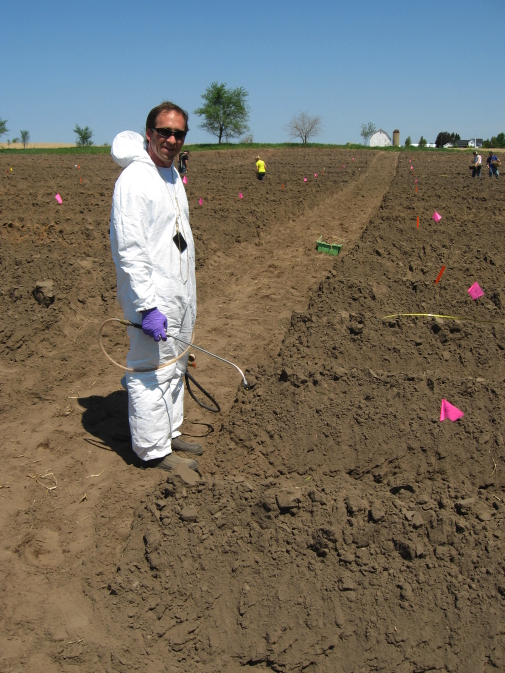

Jul 7, 2010Researchers try chemigation on new plantings
By Matt Milkovich, Managing Editor
Michigan State University (MSU) researchers, in collaboration with the Michigan asparagus industry, are studying the efficacy of chemigation in an experimental asparagus field in the western part of the state.
The two-and-a-half-acre field is being leased by the state’s asparagus industry. It’s in asparagus-rich Oceana County, a few miles down the road from a research farm that’s also managed by the industry. That farm is being used to its capacity and more ground was needed for experiments, so the industry decided to lease an extra field, said John Bakker, executive director of the Michigan Asparagus Advisory Board.
On a warm day in May, MSU personnel were out in the new field, planting asparagus crowns – a rare occurrence, since the perennial crop lasts for years. The researchers will experiment with the asparagus plantings in different ways, including using chemigation. The field was prepared last year, Bakker said.
As part of the experiment, the researchers will lay drip tubes in rows of asparagus plants. The tubes will deliver water and insecticide to the new plants, which are especially sensitive to pest attacks in their first year. The insecticide will translocate within the plant, so when a pest, such as an asparagus miner, comes in physical contact with the plant the pest will die, said Zsofia Szendrei, MSU’s vegetable entomologist.
Most asparagus growers use foliar insecticides to control pests. Chemigation is a novel way, in asparagus, to deliver both water and insecticides to the plant. This summer, the researchers will compare the efficacy of chemigation, foliar sprays and in-furrow applications of insecticides when it comes to protecting young plants from pests such as the asparagus miner and asparagus beetle, Szendrei said.
Whatever the results, they won’t come quickly. The newly planted asparagus won’t be harvested until 2012. It might be 2015 before the researchers feel comfortable enough to make any recommendations, Bakker said.














